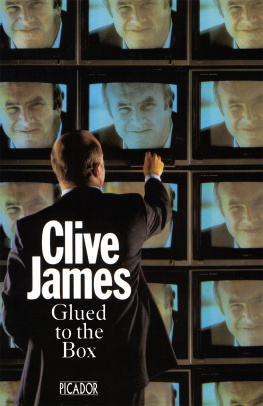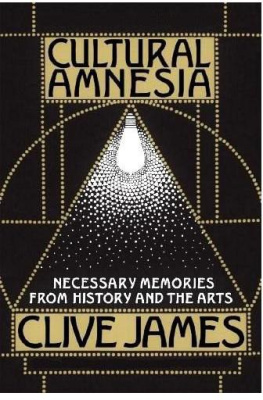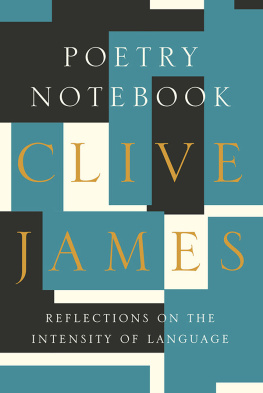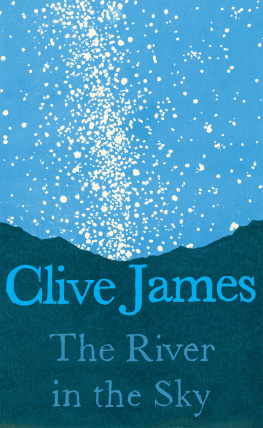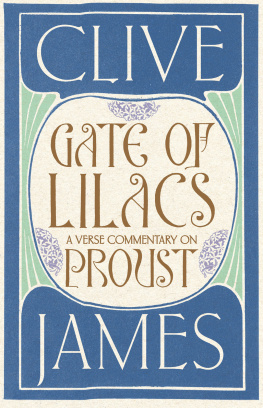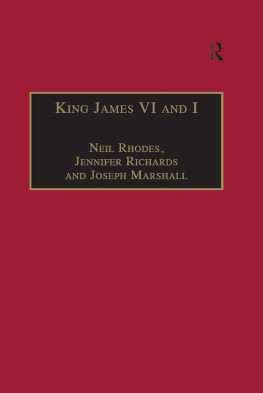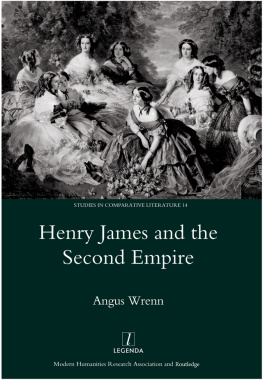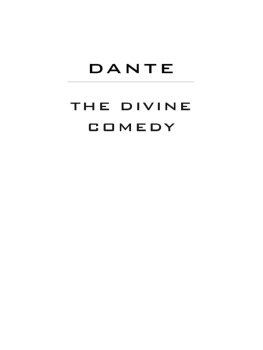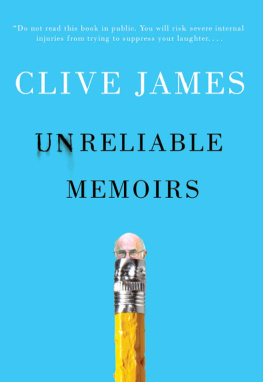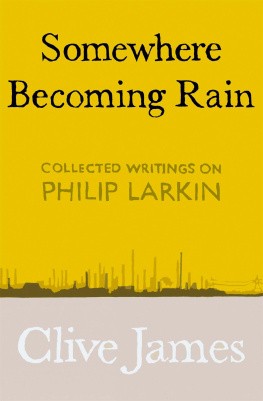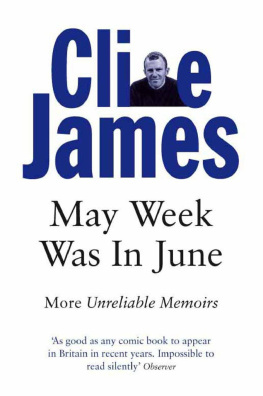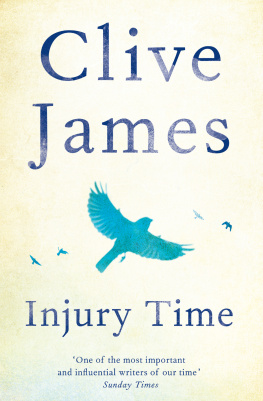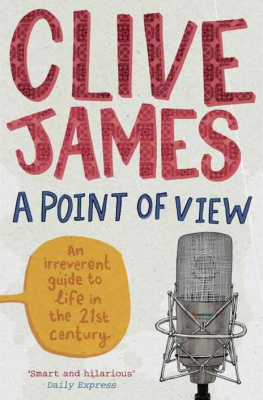Latest Readings
Clive James

Latest Readings

Copyright 2015 by Clive James.
All rights reserved.
This book may not be reproduced, in whole or in part, including illustrations, in any form (beyond that copying permitted by Sections 107 and 108 of the U.S. Copyright Law and except by reviewers for the public press), without written permission from the publishers.
Yale University Press books may be purchased in quantity for educational, business, or promotional use. For information, please e-mail (U.K. office).
Designed by Sonia L. Shannon
Set in Fournier type by Integrated Publishing Solutions,
Grand Rapids, Michigan.
Printed in the United States of America.
Library of Congress Control Number: 2014958943
ISBN 978-0-300-21319-5 (cloth : alk. paper)
A catalogue record for this book is available from the British Library.
This paper meets the requirements of ANSI/NISO Z39.48-1992 (Permanence of Paper).
10 9 8 7 6 5 4 3 2 1
To my doctors and nurses at Addenbrookes Hospital, Cambridge, UK

cras mihi
Contents
Acknowledgments
MY THANKS TO Prue Shaw, David Free, Claerwen James, and Deirdre Serjeantson for reading the manuscript. The last two I hold responsible for getting me hooked on Patrick OBrian. Thinking I already knew something, I was always reminded that there was more to know when I conversed with Michael Tanner over coffee after one of our many chance encounters at Hughs bookstall in the Market Square of Cambridge. Finally I should thank Hugh himself, a quiet man who patiently listened when I extolled the virtues of Flann OBrien. Meanwhile, Hugh was quietly assessing whether I had enough strength to take a vast book of Modiglianis drawings home by taxi, or whether he should deliver it himself at the end of the day.

Latest Readings
Introduction
WHEN I EMERGED from hospital in early 2010 with a certificate to say that I had a case of leukemia to go with my wrecked lungs, I could hear the clock ticking, and I wondered whether it was worth reading anything both new and substantial, or even rereading something substantial that I already knew about. Poetry, yes: I was putting the finishing touches to my Poetry Notebook, and there were still some more notes demanding to be added. But even the slightest book of prose looked like a big thing that I might not have time to get through. The cure for that attitude was Boswells Life of Johnson. After reading the whole masterpiece with delightI had read bits of it before, but I could now see that it needs to be taken completeI resolved to get back to Johnson himself later.
In view of the fact that I was once again on my feet, instead of flat on my back, the concept of later suddenly seemed less quixotic than realistic. If you dont know the exact moment when the lights will go out, you might as well read until they do. My familys plans for my remaining years of existence included extracting me from my place of work in London and installing my library in a house of its own in Cambridge. In this house I would live, read, and perhaps even write. The move took what seemed like years. About half my books had to be sold off just to create some breathing space. What was left filled the specially built shelves to the limit. I made a vow to myself and all concerned that my book-buying days were over. But with the renewed urge to read, I found, came a renewed urge to buy. In recent years the number of secondhand bookshops in Cambridge has been drastically reduced. Most of the trade has moved online. But the Oxfam shops, somehow free from the killingly high levels of rent, were still worth visiting on those occasions when I could summon the strength to limp the half-mile into town. And always, in the Market Square, on Tuesdays and Thursdays, there was Hughs bookstall, known to its devotees both literary and academic as one of the great bookstalls on earth.
As the laid-out stock is sold off during the day, the gaps are filled with yet more books from Hughs seemingly inexhaustible supply of substantial hardbacks and paperbacks. Hugh doesnt say much, but those in the know tell me that he scores all this mouthwatering stuff at car boot sales. I suppose that the original owners of the books have died off, and their families have put the books back into the economy in the simplest way possible. As I was scheduled to die off myself, even if I did not precisely know when, it was madness to start making small piles of books on Hughs stall that I wanted to take home. But the madness was divine. Even if I already had the book, he might have a handier edition; and often they were titles that I had once owned but lost along the way; and most often of all they were books that I had never owned before but now realized I ought to possess. Somewhere in there was an itching sense of duty. The childish urge to understand everything doesnt necessarily fade when the time approaches for you to do the most adult thing of all: vanish.
But these and similar philosophical principles will be treated from time to time throughout this volume. Finally you get to the age when a books power to make you think becomes the first thing you notice about it. You can practically sense that power when you pick the book up. The books I already had in the house presumably once generated the same sort of charge when I contemplated buying them. Now there they were, still in their thousands despite the recent winnowing. I roamed slowly among them: old purchases begging to be read again even as the new purchases came in at the rate of one plastic shopping bag full every week. Insanity, insanity. Or, as Johnson might have said, vanity, vanity.
Johnson, who often convicted himself of indolence, might possibly have approved my plan for the organization of this volume: there isnt one. It just sort of happened, and for several years I had been occupied with what might well have been my last readings before Yale kindly got the idea of asking me to compose a little book about whatever books I had been reading lately. Even after the request came, I went on reading in no particular order, mixing books of obvious seriousness with books of seeming triviality; as I always have, in the belief that culture is a matter not of credentials, but only of intensity, and sometimes you will find things out from fans and buffs that you wont from a tenured professor. Thus there were heavy books about Washington that taught me about American politics, but also featherweight books about Hollywood that taught me about American cultural imperialism: which is, after all, the branch of American global dominance that actually works, however much the rest of us might fret.
I also mixed books I had read before with books I ought not to have neglected. The second category, I found, tended to absorb the first; because if I had first read a book long enough ago, it seemed brand new when I came to it again. I suppose the big find, among those books truly new to me, was Olivia Mannings set of two trilogies; and the shock of pleasure that her writings delivered to me is recorded here with due prominence. But it was almost as much of a revelation, after more than fifty years, to rediscover Joseph Conrad. My
Next page

